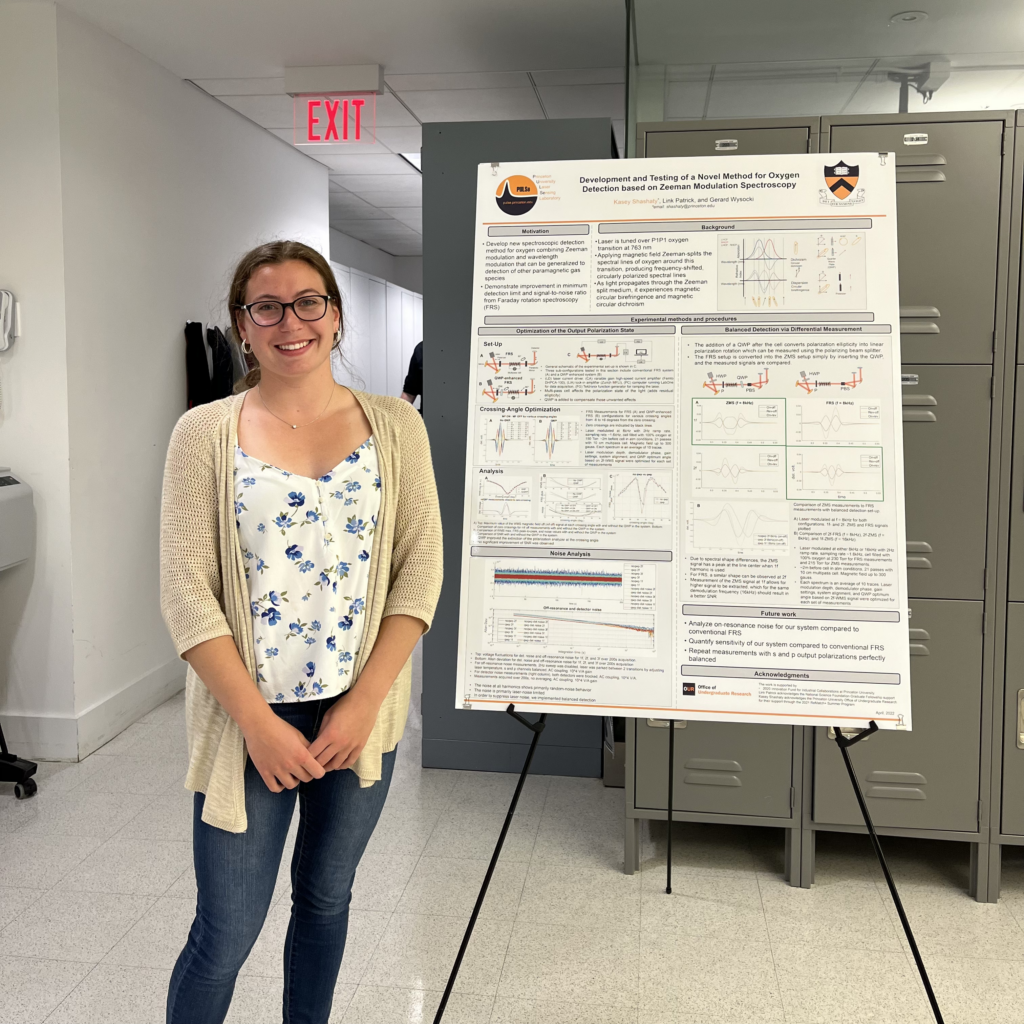Last spring, I interviewed Kasey Shashaty. In this second part of my interview, we discuss specific challenges in her transition between virtual and in-person research and reflections on how this experience in the PULSe Lab has influenced her perspective on research and her plans for the future.
Kasey Shashaty got her jumpstart in research through the ReMatch+ program organized by the Office of Undergraduate Research. ReMatch+ is a summer mentorship program that pairs first-year and second-year students with a graduate student or postdoctoral fellow as they work on a summer research project. Read on to learn more about her research experience!
A: What were the challenges of doing your research virtually? And how did you overcome it?
K: The main challenge was that I didn’t have much programming experience coming into my virtual research. I knew it was going to have a very steep learning curve. Going into the project, I had to learn Node, Javascript, how to communicate with a server, hosting a database on a server, publishing what I built onto a website, and making sure this site was functioning properly and not crashing. I had to teach myself a lot of it – watching a lot of videos and following a lot of tutorials so that I could make a website that wouldn’t break. My adviser was really great. When we started out, we started building simple tools like a basic HTML page with buttons. Then we realized we needed a Node-like framework, so I had to transition into tutorial videos and looking through StackOverflow a lot. During the summer, I was able to go to the lab in person once a week, which was really cool because I got to see how what I was making was applied in real life.
A: I think that’s a really great answer. Can you describe the support you receive from your grad student from your experience?
K: The grad student I’m working with is awesome. He’s super knowledgeable and very patient with me. He can tell when I’m really confused by something, and he really takes the time to explain it very well. I’ve learned a lot from him. For example, with note-taking, I noticed that he would take notes on PowerPoint, and he has a very specific notation. He has a text box with all of the parameters and he’ll make figures in PowerPoint of each experiment then he organizes it by date and includes the measurements and a brief description of what we did to get those measurements and what these measurements mean to us. It made me feel like I was more organized and helped me understand what was happening. I also feel like he is always there for me if I need to have a question or if I need something explained, he never doesn’t have the time to work with me. He’s so busy as a grad student preparing for his PhD defense, but he’s so chill and really good to work with. I feel like he’s an older brother in a way. He’s gonna graduate soon, which kind of sucks, but I’m excited to keep working with him.
A: Last two questions for you. First, how has ReMatch+ influenced your perspective on research and future career goals?
K: When I started ReMatch, I knew very vaguely that I wanted to do biomedical engineering, but I didn’t know which area of biomedical engineering I was interested in because it’s such a broad field. But now I know I’m interested in things like imaging and diagnostics. I was also able to see the week-to-week progression of how a research question transforms into experiments and projects.
A: Has it affected your post grad life plans?
K: It has confirmed them. I’ve always been kind of set on grad school and I’ve always wanted to do research, but I never did research seriously until last summer (2021). There were many positive things, and it was what I hoped it would be. I like problem solving and just being an engineer.
A: Okay, last question. Do you have advice for first-year students or sophomores interested in getting more involved with academic research?
K: I feel like I was afraid when I was a first-year. I wish someone had told me that you can cold email people. I feel like I was really intimidated to get started with research; I would overthink every email I sent, but I realized the professors here really want to help and support you. They’re very excited about their research, and I feel like I got very lucky with my lab group in particular. I feel like I have a really great relationship with my grad student and with my adviser. They’re giving me so many opportunities, and now I think about if I had thought to ask sooner and start working with them in freshman year. In summary, don’t be afraid to reach out to professors whose research interests you.
Listening to Kasey talk about how she got started with research reminded me of how there are many paths towards getting involved with research; the key is to make that first jump and try it out. Being able to realize our shared passion for research and problem-solving also reminded me of how grateful I am that I took the leap into research years ago and makes me excited for everybody who is yet to take the leap.
— Agnes Robang, Engineering Correspondent


